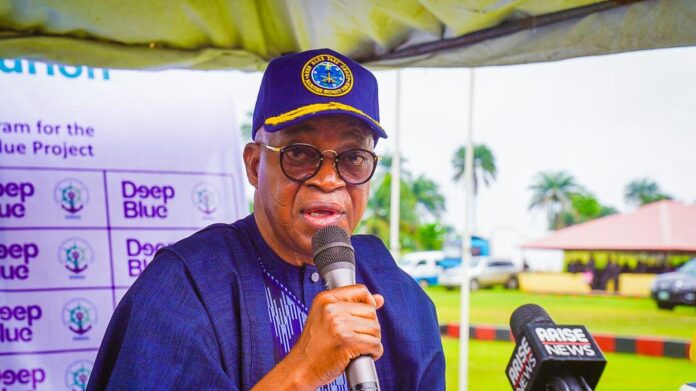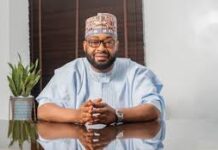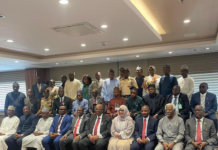Oyetola Unveils Policy Strategy for Harnessing Marine Resources
By Kabir Akintayo
In a significant step toward sustainable development, the Minister of Marine and Blue Economy, Adegboyega Oyetola, has announced Nigeria’s commitment to harnessing its vast marine resources through the creation of the National Blue Economy Strategy.
Speaking at the opening of the three-day National Stakeholders’ Consultation and Validation Workshop in Abuja on Monday, Oyetola emphasized the importance of this strategy in shaping Nigeria’s future marine resource management.
“This validation workshop is both timely and essential, as it comes at a period when the Ministry is focused on policy formulation, strategy development, governance harmonization, and institutional capacity building for the sustainable development of Nigeria’s Blue Economy,” Oyetola stated.
He further highlighted the country’s ambitious plan to expand its blue economy, which is expected to contribute significantly to Nigeria’s GDP by facilitating the creation of numerous small and medium-sized enterprises (SMEs) in the sector over the next decade.
“We are aligning with the Blue Belt Initiative, which promotes the sustainable use of our ocean resources to drive economic growth and improve livelihoods while preserving ocean ecosystems,” Oyetola added.
Read Also:
The Minister expressed gratitude to the African Union Inter-African Bureau for Animal Resources (AU-IBAR) and the Kingdom of Norway for their unwavering support in developing the strategy.
Reflecting on Nigeria’s journey into the Blue Economy, Oyetola traced the initiative back to the 2018 African Union Conference, commending President Bola Ahmed Tinubu’s administration for elevating the concept into a national priority.
He stressed that strategic collaboration between the government, private sector, and international organizations is essential to unlocking the full potential of Nigeria’s coastline and marine assets.
In his remarks, Georges Mba-Asseko, Head of the Blue Economy Division at the African Union Commission (AU), urged Nigeria to capitalize on its vast resources.
“Nigeria is well-positioned to lead Africa’s Blue Economy, but when you look at sectors like fisheries, maritime transport, environment, and tourism, Africa is underrepresented globally. There is significant room for improvement in these areas,” Mba-Asseko remarked.
The first National Consultative Workshop on Nigeria’s Blue Economy Strategy was held in Abuja from April 8-10, 2024, with stakeholders from various sectors contributing to the strategy. These inputs were compiled into a draft by AU-IBAR’s consultant, which will now be reviewed, validated, and finalized at the current workshop.

















